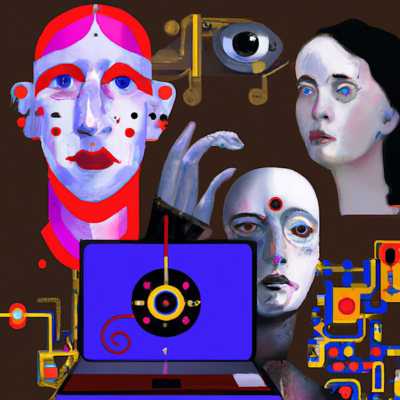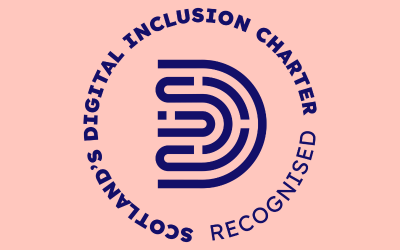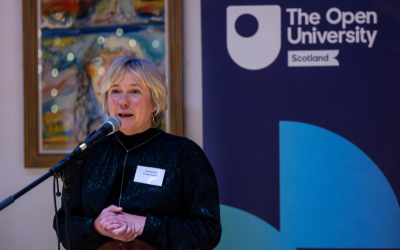Transforming education with Artificial Intelligence
 Author:
Author:
John Domingue is a Professor of Computer Science at the Open University’s Knowledge Media Institute.
Ahead of interactive public events in Scotland exploring Artificial Intelligence (AI), Open University (OU) Professor of Computer Science John Domingue shares the latest developments in AI at the OU and beyond.
Within the past decade or so Artificial Intelligence has come to the fore in higher education, with The Open University leading the way.
Over 40 years ago, as a computer science graduate with a fascination with Artificial Intelligence, I joined the OU’s AI centre within its Psychology Department.
With fellow PhD students and IT staff, our group crafted new AI tools and rigorously evaluated their impact on test subjects, before deploying the tools within the Cognitive Psychology course. My own PhD - focused on building an AI Tutor - contributed to our joint endeavour.
 Around ten years later the OU founded its Knowledge Media Institute (KMi), to be an OU research and innovation centre focused on technology. I joined enthusiastically as the doors opened.
Around ten years later the OU founded its Knowledge Media Institute (KMi), to be an OU research and innovation centre focused on technology. I joined enthusiastically as the doors opened.
One of our greatest achievements has been conceiving, designing and building the multi award-winning OU Analyse system, which can help tutors to identify when a student needs help, so they can provide the necessary support. The system can predict with 95% accuracy whether an Open University student is at risk of failing the next assignment or module overall.
In operation for over a decade now, OU Analyse usage by a tutor is the second highest factor in students passing a course, with students having a 7% greater chance of a successful outcome. This rises to 10% for BAME (Black, Asian and Minority Ethnic) students.
In recent years my exploration into leveraging Artificial Intelligence to enhance the learning experience has focused on Generative AI.
Generative AI can generate images, text, or similar data, in response to a request with prompts. It searches existing data and uses statistical analysis to identify typical patterns and structures, to then generate new output with similar characteristics. An example is the now famous free-to-use tool ChatGPT (Chat Generative Pre-trained Transformer), in which users enter prompts to receive images, text or videos that are created by AI.
The primary emphasis of the OU’s research and innovation in Generative AI has been on how it can assist academics in crafting educational materials, and the prospect of providing each OU student with their own personal Artificial Intelligent Digital Assistant.
Most OU students would embrace this additional support, with the caveat that these innovative tools are not ever used as a substitute for human assistance."
This assistant would have the capability to answer queries about the course, instantly generate quizzes for self-knowledge testing, and clarify complex concepts.
Initial findings from surveys and focus groups suggest that most Open University students would embrace this additional support, with the caveat that these innovative tools are not ever used as a substitute for human assistance.
With the UK’s Institute of Coding – which encourages a larger, more diverse group of people into tech careers through digital skills education and has had over 1 million learners since its inception – I recently led the theme where we developed an AI Career Career Coach to provide neutral but personalised carers guidance. An extension of this work is the 'Dream Machine', with an aim to fulfil OU students’ desires of finding their dream job. Both projects reached the proof-of-concept implementation stage, to evaluate their requirements and the financial resource required.
In April this year I will be co-presenting in a mini tour of Scotland on ‘Generative AI: Hopes and Fears’, where we will delve into the latest advancements and will demonstrate Generative AI in action.
At these interactive public events in Dumfries and Edinburgh panels of experts from the OU, the Scottish AI Alliance, and the South of Scotland Enterprise will the discuss worries, excitement and confusion around Generative AI, and how it might affect the world.
AI, the OU and I have come a long way since my arrival at The Open University back in 1983, but I strongly believe that the best is yet to come.
I predict that over the next five to ten years Artificial Intelligence will completely transform how we teach, enhancing The Open University’s long-established mission of providing education for all.
The ‘Generative AI: Hopes and Fears’ evening events are taking place in Dumfries on 9 April 2024 and Edinburgh on 10 April 2024.
The OU’s free learning site OpenLearn has a range of content about Artificial Intelligence, including the article A very brief history of AI, and the short introductory-level course AI matters, which investigates the historical, ethical and social issues surrounding Artificial Intelligence.
Image: Artificially generated interpretation of a painting in the style of the artist Caravaggio.
News
Media contacts
Media enquiries
OU in Scotland Media Relations:
Call 0131 549 7932
OU UK Press Office:
Call 01908 654316
Out-of-hours:
07901 515 891
Visit our OU UK news site

